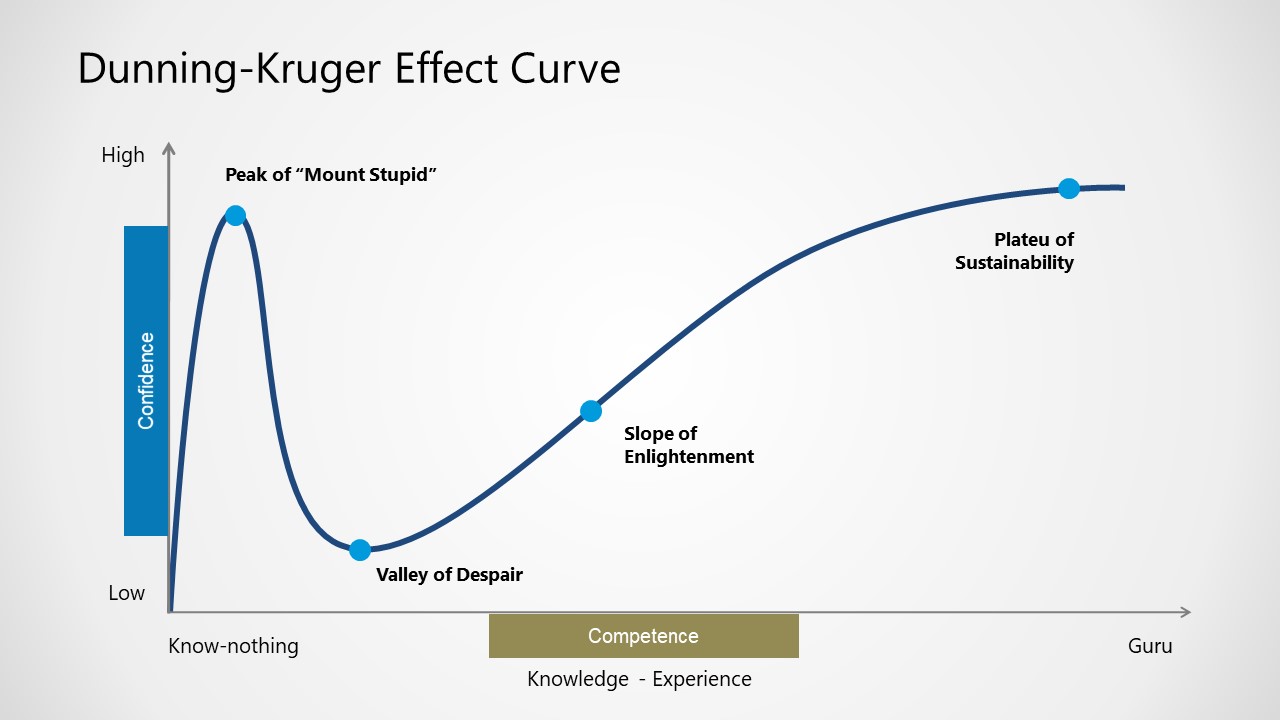
The Dunning-Kruger Effect (3/6)
The Dunning-Kruger Effect is a cognitive bias in which unskilled individuals suffer from illusory superiority, mistakenly rating their ability as much higher than it actually is. This bias is attributed to a metacognitive inability of the unskilled to recognize their mistakes.
— Wikipedia
A Simpler Interpretation of the Concept
In simpler terms, we can say that people who don't know much about something usually consider themselves much smarter or more capable than they really are. They are misled about their abilities because they lack the knowledge to accurately assess their own limitations.
What Conclusion Can We Draw?
Firstly, we should not underestimate things. Sometimes, something that seems elementary may appear easy and straightforward, but in reality, it may not be as it seems. Secondly, we should never think that we know absolutely everything because there is always something more to learn to enhance our knowledge.
For example, Stevan has been working on something for many years and is a great expert. He's so good that it takes him a negative amount of time to complete tasks he has. However, George thinks that what Stevan is working on, he could do faster because he considers it "easy." Yes, George tries to do the tasks that Stevan does to prove he's right, but he realizes that he underestimated the complexity. In the end, George has made this mistake because there wasn't enough information about the nuances and details related to the tasks Stevan works on every day.
My Personal Advice
- Everyone starts as a beginner, and everyone has to learn.
- Be patient and don't rush to conclusions. Be ready to feel stupid sometimes, but don't let that stop you from learning.

